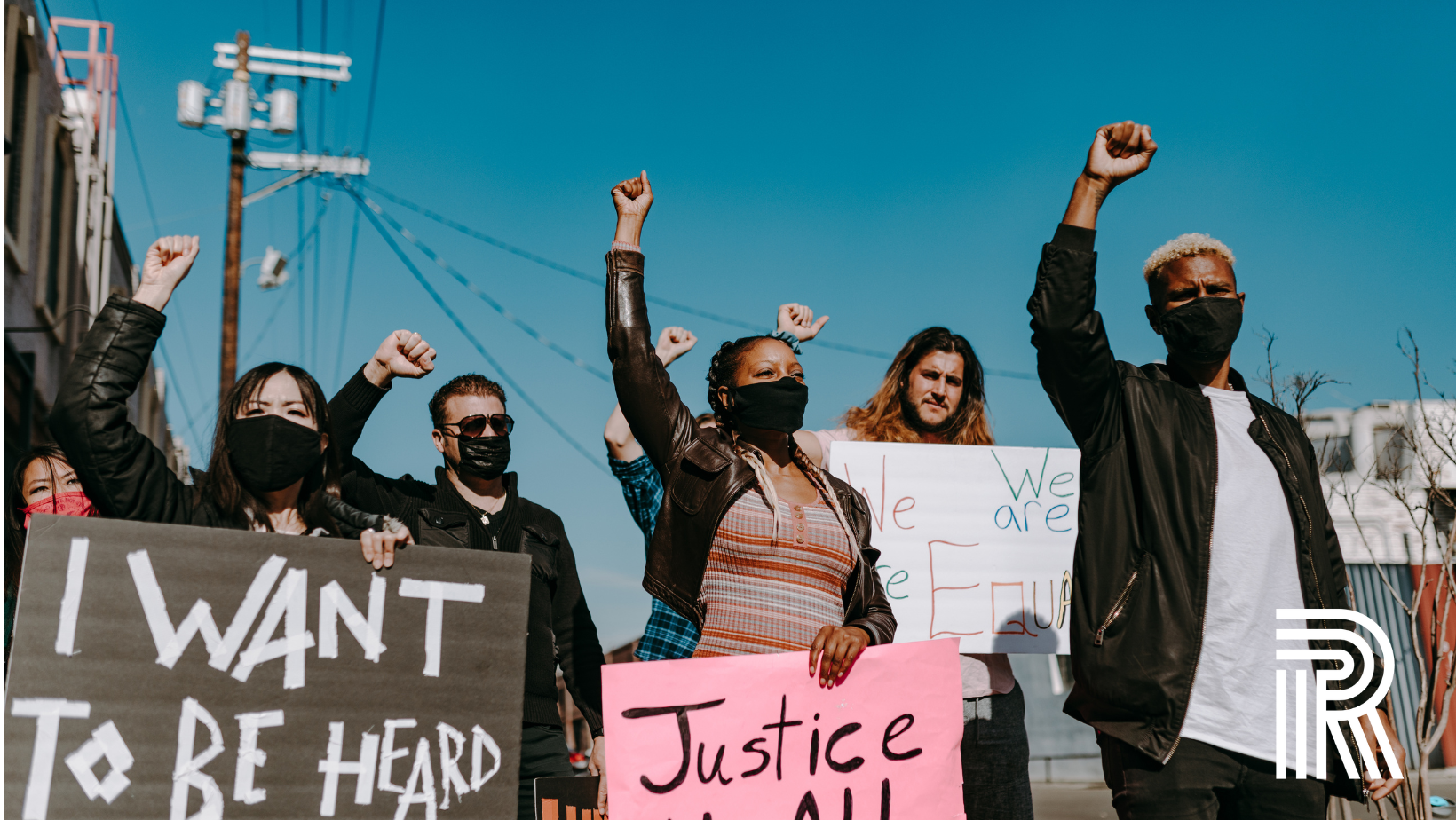
Corporate Social Justice Engagement - Examining the Reputation Risks and Opportunities
Consumers and other stakeholders are putting their money where their morals are and expect the brands they do business with to do the same. The Harvard Business Review defines corporate social justice as “a reframing of CSR that centres the focus of any initiative or program on the measurable, lived experiences of groups harmed and disadvantaged by society.”
Often, an organisation’s reputational processes will usually run through marketing whose remit is to keep their fingers on the pulse of their customers. In a commercial environment where regulators, investors, employees and social activists are as important as customers, businesses need a better process.
Stakeholder expectations may be as changeable as the weather, but in industries where the reputations behind brands carry significant value, failure to meet those expectations can have material financial consequences. Whether its climate change, trans rights, or the “Me Too” movement, hot button social issues are top of mind, and businesses across a wide range of industries need a process for navigating them, balancing the wants of their stakeholders with their responsibilities to their shareholders, and pre-emptively preparing for new crises as they appear on the horizon.

In this era of divisive politics, weaponised social media can feel like a thorny path to tread but it’s one that is essential to the maintenance of reputational resilience and risk management.
Chief executive officers themselves opened the door to stakeholder sway over corporate priorities when they signed onto the Business Roundtable pledge in 2019, which elevated the environment, communities, employees and other stakeholders to the level of shareholders and redefined the purpose of a corporation as promoting ‘An Economy That Serves All Americans.’
Was this CEO activism simply situational, in response to recent social unrest? Or was it perhaps suggestive of something bigger at play: a public expectation that CEOs should step up and assume more of a civic role as part of their responsibility to stakeholders? Either way, CEO and leadership activism has implications for risk professionals, particularly with regard to reputational risk. Specifically: What's at stake when leadership decides to cross the civil rights Rubicon, or, conversely, stays silent or backtrack? What are the risk management implications of this current climate of corporate and leadership engagement?
Companies with strong reputation risk management processes in place can navigate these issues effectively, but if one thing is to be assured it is that you cannot please all stakeholders in this current environment. A couple of recent examples are the likes of Bud Light and Nike, coming under fire for featuring trans influencers such as Dylan Mulvaney in the face of growing anti-trans hate and legislation. Although including individuals from the LGBTQ community in marketing is nothing new, what is new is the extreme right-wing politicisation of a company’s creative and business decisions.
More than a quick fix
Time and time again, companies have been clearly caught on their heels, too often relying on marketing alone to address reputational risks. They need to keep their fingers on the pulses of more than just customers. What they need are 21st century enterprise-wide reputation risk governance and management processes designed to mitigate 21st century problems. They should be equipped to gather intelligence about the expectations of all their stakeholder groups—employees, customers, community leaders, investors, and regulators. Having a finger on the pulse of these varying opinions is crucial, as is an intimate knowledge of corporate values and capabilities, so that responses to hot button issues can happen in real time. Which expectations can they meet or manage—and is there a benefit to doing so? And for the ones they can’t, can they calculate the potential cost of disappointing any given stakeholder group and account for the resulting financial and reputational impact with insurance?
Whether brands should be vocal about their social justice support is a complex and controversial issue. On the one hand, some argue that brands have a responsibility to use their platform and influence to promote social justice causes and support marginalised communities. By being vocal about their support, brands can raise awareness, encourage others to get involved, and demonstrate their commitment to social responsibility. On the other hand, some argue that brands may be seen as exploiting social justice issues for marketing purposes or may be accused of "virtue signalling" - that is, making a show of their support without taking meaningful action, which ironically, can have a more detrimental impact on the communities they are purporting to support. Additionally, some consumers may prefer that brands stay neutral on social justice issues and focus solely on their products or services.
Ultimately, the decision of whether or not to be vocal about social justice support is up to each individual organisation. However, if a business chooses to take a public stance on social justice issues, it is important that they back up their words with concrete actions, such as making changes to their hiring practices or donating to relevant causes. It is also important for brands to ensure that their social justice efforts are genuine and not simply a marketing ploy.
Businesses can be more authentic when they support social justice by taking the following actions:
1. Show genuine commitment: A business should demonstrate their genuine commitment to social justice causes by taking concrete actions, such as donating a portion of their profits to relevant organisations, implementing inclusive policies and practices, and publicly standing up for marginalised communities.
2. Educate themselves: They should educate themselves on the issues at hand and engage with experts and community leaders to understand the challenges faced by marginalised groups. This will help the business to communicate more effectively and in a more informed manner.
3. Take a long-term approach: Approach social justice initiatives with a long-term perspective, rather than a short-term marketing strategy. They should focus on building lasting relationships with communities and organisations working towards social justice, rather than just using them for a quick PR boost.
4. Hold themselves accountable: Businesses should hold themselves accountable for their actions and be transparent about their efforts towards social justice. This includes reporting on progress and being open to feedback and criticism.
5. Use their platform: Allow communities to use your platform so as to amplify their voices and promote their causes. This includes sharing stories and perspectives from diverse voices and collaborating with community-led initiatives to create meaningful change.
There is always going to be a new reputational crisis looming on the horizon, a new issue dominating the social conversation, and while predicting the changing tides will be challenging, reputational risk management processes will determine which companies stay afloat and which get swept away. However, by taking these steps, brands can be more authentic in their support for social justice and create a positive impact in the communities they serve.



